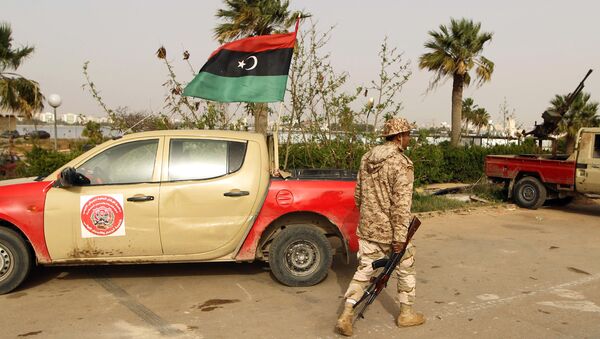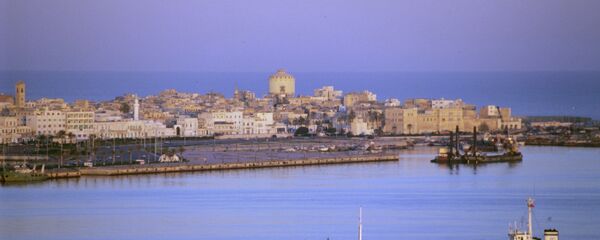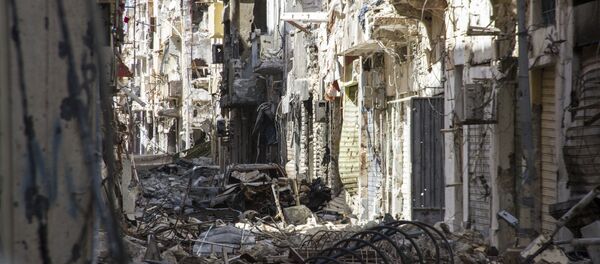CAIRO (Sputnik) — Following the Arab Spring protests in early 2011 and the overthrow of long-standing leader Muammar Gaddafi, Libya plunged into political turmoil. Two rival governments were then formed in the country, the internationally-recognized Council of Deputies in Tobruk and the Islamist-dominated General National Congress (GNC) in Tripoli. In December, they agreed to create the Government of National Accord.
"Compared to the situation in Yemen [where the government has been fighting Houthi rebels], the international community did not support the legitimately elected Libyan parliament in the face of the Islamist attacks, but, on the contrary, demanded to engage them in power structures," Jibril, who served as Libyan prime minister between March and October in 2011, said.
UK, French, Italian and German foreign policy chiefs have visited Libya to meet the country's unity government.
Daesh Sleeper Cells
Daesh sleeper cells in the Libyan capital of Tripoli pose the greatest threat to the security of the country.
"Sleeper cells in Tripoli pose the biggest threat to the future of Libya because if the city is captured, it will be the first capital in the IS [Daesh] hands," Jibril told Sputnik, noting that the international attention was instead focused on the presence of extremists in the city of Sirte.
He stressed that in order to effectively fight terrorists Libya needed a well-equipped army, even if it were not very numerous, but the situation was difficult in light of the UN ban on arms deliveries to the country.
"The establishing of strategic relations with Russia could help achieve balance and give Libya alternatives. I wish the Libyans were shown that they are not alone, that they have friends. Libya has the right to cooperate with those who will respect its will," Jibril said.
Jibril occupied the post of Libya's prime minister during the tumultuous times in the country between March and October 2011, as the state descended into political chaos after the Arab Spring uprising and the overthrow of leader Muammar Gaddafi.
The instability in Libya has triggered the rise of Islamist militant and terrorist groups, particularly Daesh, outlawed in many countries around the world including Russia.




